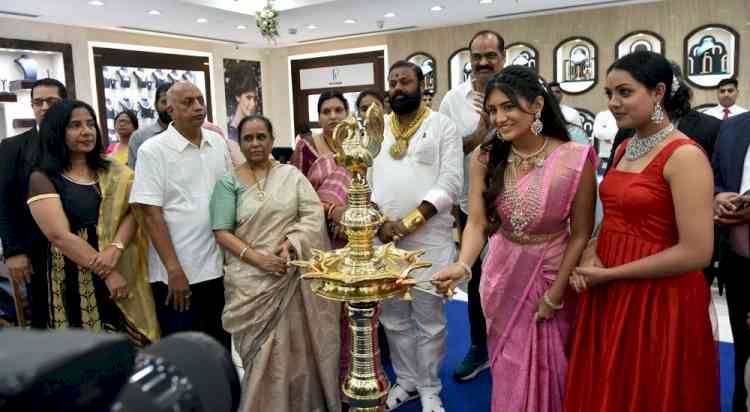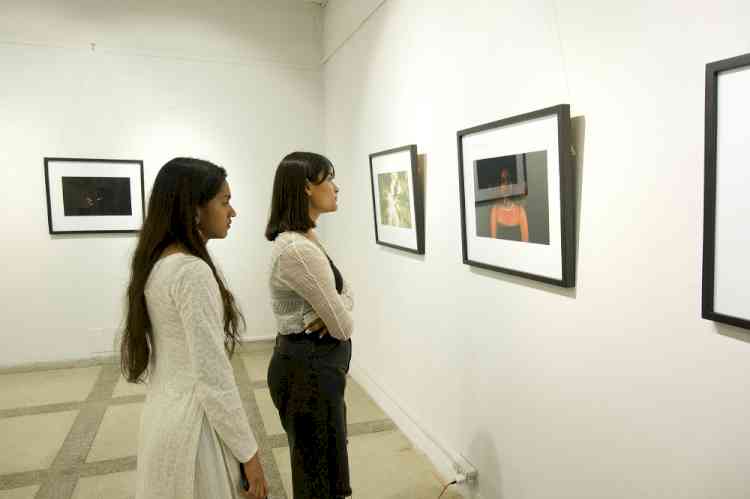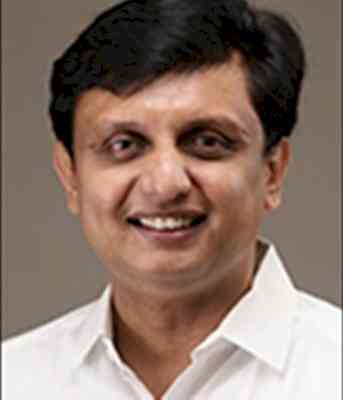Fasting With Diabetes?
One of the country's busiest seasons, Navratri also brings with it a tradition of fasting and feasting. In addition to fasting on nine auspicious nights, many mouthwatering dishes are also cooked, including sabudana khichdi, fruit chaat, and kheer to kuttu ki poori and aloo kadhi.

New Delhi, Sep 24 (IANSlife) One of the country's busiest seasons, Navratri also brings with it a tradition of fasting and feasting. In addition to fasting on nine auspicious nights, many mouthwatering dishes are also cooked, including sabudana khichdi, fruit chaat, and kheer to kuttu ki poori and aloo kadhi.
Adults are advised to fast occasionally as it gives their digestive systems a break and aids in the body's detoxification process. However, if necessary precautions are not followed regarding the type of foods consumed, particularly if the person has diabetes, fasting and consuming a restricted diet for 9 to 10 days consistently can endanger one's health.
Dr. Sunil M Jain, Endocrinologist , TOTALL Diabetes Hormone Insitute, Indoresays, "Diabetes management during Navratri fasting is important owing to the change in food patterns, nature of the fast, and the food items allowed. People with diabetes must eat at regular intervals to maintain optimum blood glucose levels and consume foods, which have a low glycemic index, before beginning the fast. It is key to check blood glucose levels a few times during the day. Today, there are continuous glucose monitoring devices that are easily accessible and do not involve any pricks. These devices show real-time glucose results and a directional trend arrow showing where glucose levels are headed, that help make informed dietary decisions by the person."
Here are some suggestions for navigating the holidays without jeopardising your health, even if managing diabetes is more difficult when fasting is followed by a feast.
Eat the right foods - Due to the dietary restrictions and altered food patterns, it is possible that blood sugar levels could fluctuate. Therefore, it is important to talk to your doctor about your plan for fasting, which should include the number of fasting days, eating frequency and timings, and foods that can be consumed, as that will help regulate glucose fluctuations and boost overall health. One can opt for foods rich in vitamin C, antioxidants, protein, and fiber, which facilitate in controlling blood glucose levels.
Consumption of roasted makhana, nuts, and pumpkin cutlets can make for good snackable satiety during fasting, as they also meet protein requirements. Additionally, vitamin C and fiber-rich fruits such as orange and kiwi are good for consumption as they help manage the insulin fluctuations in the body.
Keep Track of Your Counts - Knowing when to check your blood glucose levels during fasting is key. Keeping a home glucose monitoring system will help you track your glucose levels from time to time. Today there are sensor-based devices such as Freestyle Libre, that provide actionable trends and patterns that help you make better decisions about your health. It is also important to monitor glucose levels during fasting, to ensure you avoid a hypoglycemia or hyperglycemia attack.
Maintain Hydration: Dehydration during fasting is troublesome for those with diabetes. Consumption of at least 2 to 3 liters of water is a must while fasting. Buttermilk without salt and low-calorie drinks like nimbu pani, green tea, mint water, cardamom tea, smoothies, and coconut water can help combat dehydration during Navratri. It is better to have fruits like apples in the smoothie instead of bananas. You can also add 2 tsp of flaxseeds and chia seeds to your smoothie as they help reduce the risk of type 2 diabetes and diabetes complications.
Exercising - People with diabetes can exercise during fasting, however, it needs to be done at a low pace. It is important to not strain yourself during this time. One can go for short walks and include stretching exercises in their routine. You can also ditch the exercises during Navratri and enjoy yourself to the tunes of Garba.
Eating an hour before Garba will not make you feel heavy during the dance and will also ensure that you are not low on energy. For people with diabetes, having a combination of proteins and the right carbohydrates keeps you going for a long period. You can opt for a dry fruit milkshake or a buckwheat pancake with some cottage cheese cubes in such cases.
(IANSlife can be contacted at [email protected])


 IANS
IANS 








